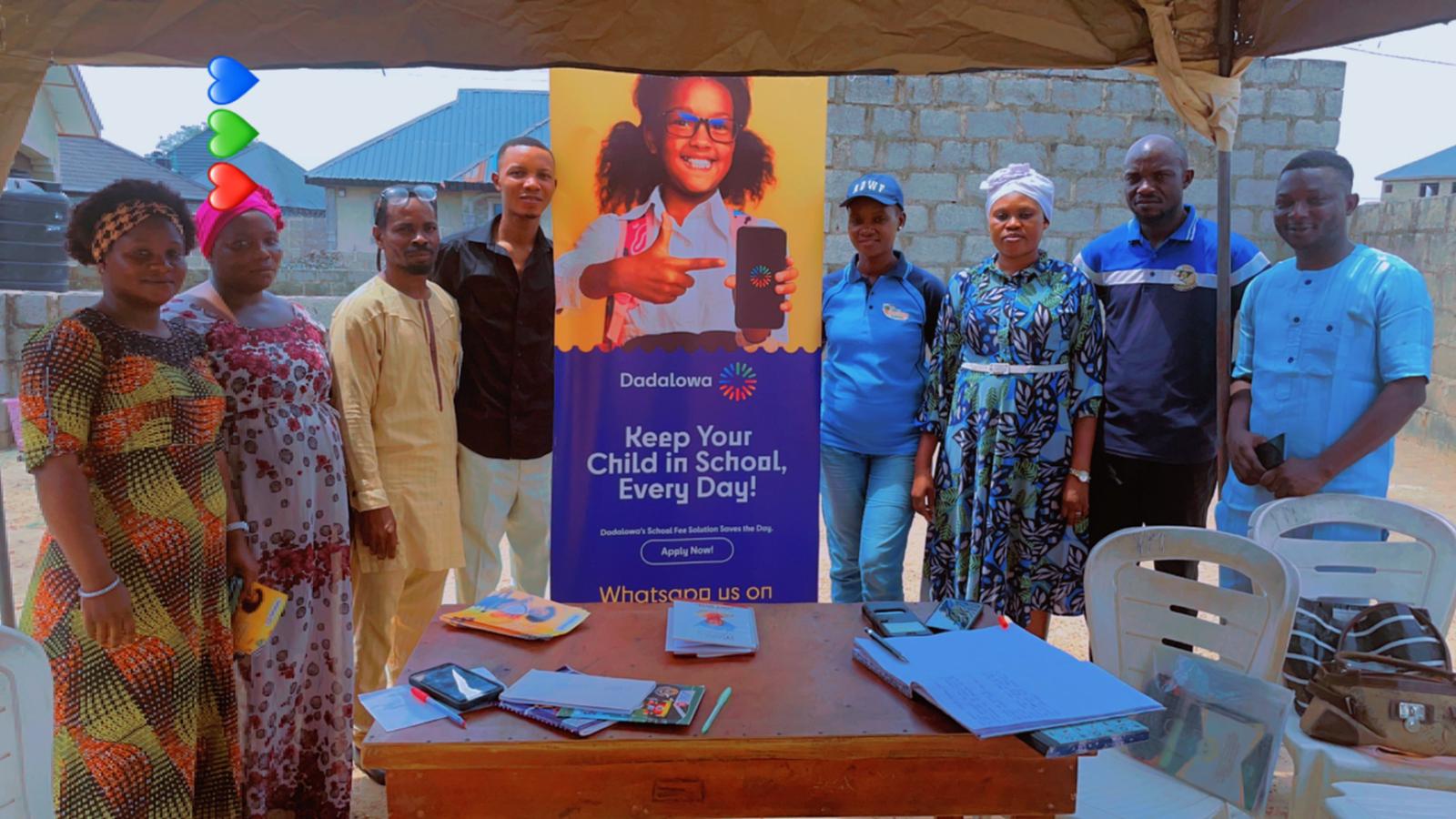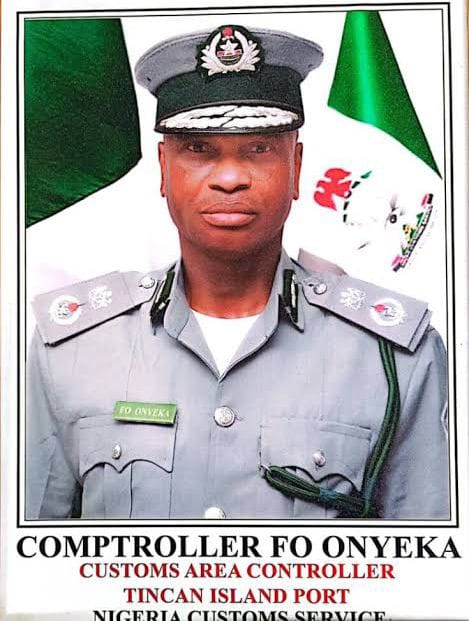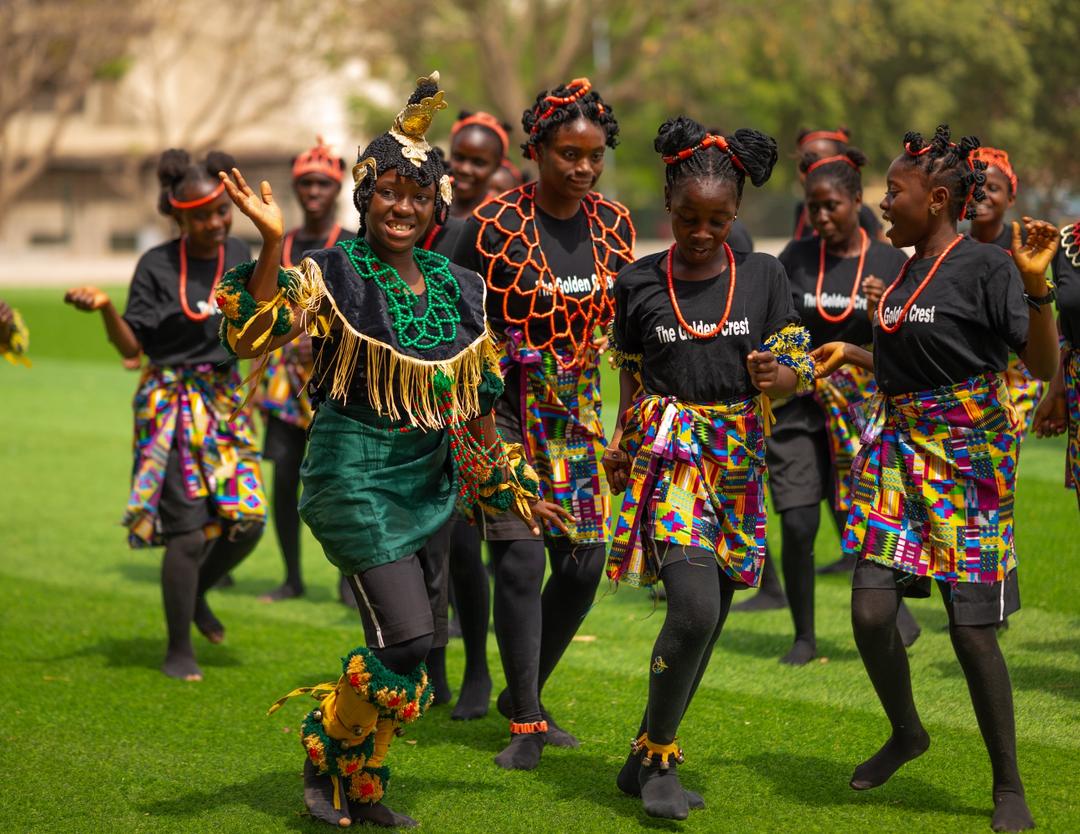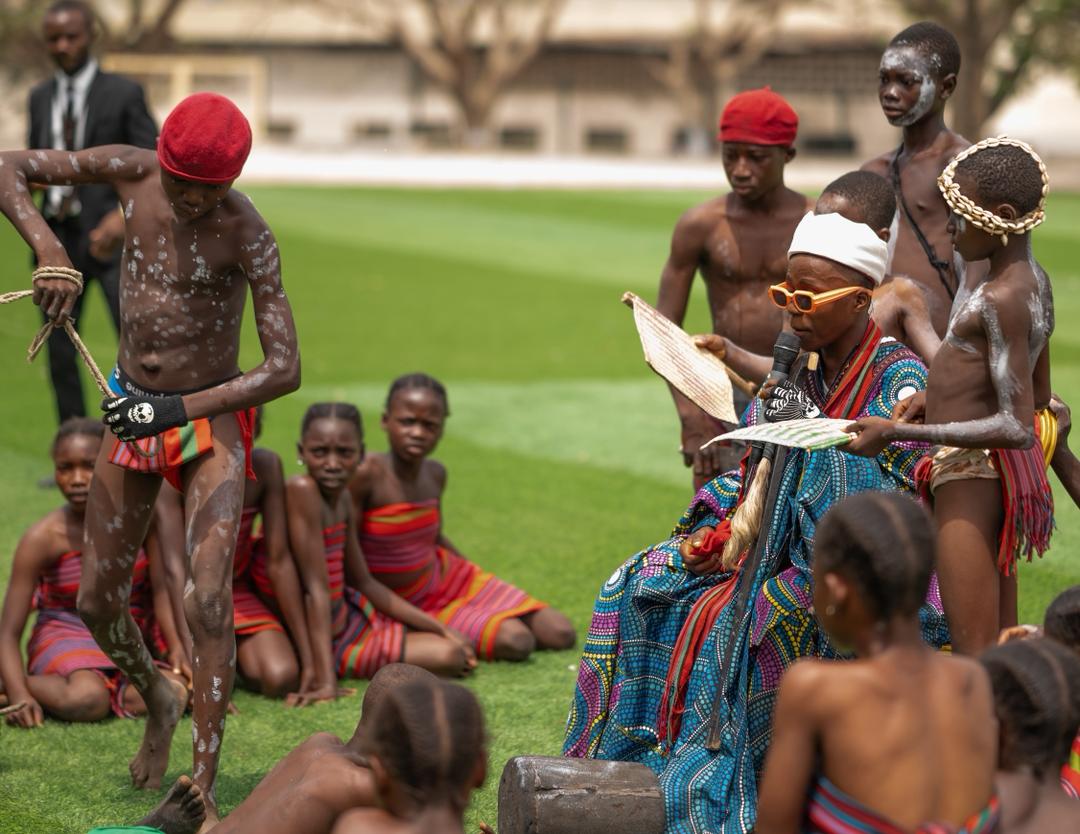society
NIGERIA’S EDUCATION CRISIS: 50% STUDENTS STRUGGLE WITH SCHOOL FEES PAYMENT AS FAMILIES RESORT TO DADALOWA BY CHINEDU NSOFOR

NIGERIA’S EDUCATION CRISIS: 50% STUDENTS STRUGGLE WITH SCHOOL FEES PAYMENT AS FAMILIES RESORT TO DADALOWA
BY
CHINEDU NSOFOR
In a country grappling with one of the highest rates of out-of-school children globally, innovative solutions like Dadalowa are providing a lifeline to families and schools. Founded by Segun Jerome, a visionary entrepreneur with over 15 years of experience across the banking, media, education, and technology sectors, Dadalowa is revolutionizing education financing in Nigeria. This edfintech platform is transforming how school fees are paid, offering flexible models that ease the burden on parents while supporting schools’ financial stability. Starting as a small initiative involving just five schools, Dadalowa has expanded rapidly, reaching 120 schools in key Nigerian cities within just two terms.
School Fees for Primary and Secondary Schools: A Growing Challenge
The cost of education remains a significant barrier for millions of Nigerian families. Sub-Saharan Africa, with Nigeria at the forefront, leads the world in education exclusion. Reports from the World Bank and UNESCO reveal staggering statistics: 20% of primary-aged children are out of school, and 60% of those aged 15-17 are not attending secondary school. The primary culprit? High school fees and rigid lump-sum payment models that fail to accommodate the financial realities of low-income families.
According to Segun Jerome, ‘UNESCO gave the value of out-of-school children to be 20 million in this region. The lost value is about $6 billion every year. There are about 166,000 registered primary and secondary schools in Nigeria, with over 50 million kids according to the Federal Ministry of Education report 2021.’
Dadalowa’s solution addresses this gap head-on by introducing micro-payment systems that allow parents to pay in smaller, manageable amounts, significantly reducing dropout rates and keeping children in school.
Over 20 Million Out-of-School Children: How High School Fees Are Widening Nigeria’s Education Gap
Nigeria’s education crisis is stark, with about 166,000 registered primary and secondary schools across the country, over 20 million children are out of school and a dropout rate of approximately 20%. The financial implications are just as dire, with annual losses estimated at $6 billion. Dadalowa’s flexible payment model is a game-changer. Parents can contribute to virtual wallets linked to their child’s school, enabling staggered payments without defaulting. This pooled fund system ensures schools receive their money upfront, eliminating the need for high-interest loans that often cripple their budgets.
By targeting the root causes of school fees challenges, Dadalowa is narrowing the education gap, one family at a time.
Nigeria’s Education Crisis: 50% of Students Face School Fee Challenges – Here’s How Some Families Cope
For many Nigerian families, paying school fees is a seasonal struggle. Data from the Federal Ministry of Education highlights that up to half of all students face financial obstacles to continuing their education. With most schools requiring fees upfront, parents with irregular income streams often resort to desperate measures, including taking personal loans or delaying payments until examination periods.
Dadalowa’s micro-payment system offers a sustainable alternative. “We provide micropayment solutions for parents who can’t pay their children’s school fees in lump sums. It is a social trust system that uses thrift to unlock credit access. Parents pool school fees by installments into virtual wallets that Dadalowa creates for them with a partner bank and schools get paid lump sums from this pool.” Segun stated. Through partnerships with banks, the program ensures schools maintain steady cash flow while parents pay fees gradually. This innovative approach has already assisted 800 families and funded the education of 1,300 children, proving its effectiveness in alleviating financial stress. “Since we opened last year, we have helped 800 families into the trust system. School fees of about 1,300 kids have been paid through Dadalowa to about 120 schools in Sango-Otta, Abeokuta, Ijebu Ode, and Ibadan.” Segun Added.
Struggling to Pay: 70% of Low-Income Nigerian Parents Can’t Afford School Fees on Time
The high cost of education isn’t limited to tuition. Transportation, uniforms, and textbooks further strain low-income families. Dadalowa addresses these ancillary expenses as part of its broader mission to make education accessible. By including services like mobility solutions and learning materials, the initiative ensures students receive a holistic educational experience without overburdening their parents.
This comprehensive approach has helped Dadalowa gain the trust of communities, enabling it to expand from 65 schools in its first two terms to over 120 schools across Ogun and Oyo states.
Staggered Learning & High Dropout Rates: The Dire Consequences of Unaffordable School Fees in Nigeria
When parents can’t afford to pay school fees on time, the impact ripples through the education system. Staggered learning schedules disrupt academic progress, and many students drop out entirely, perpetuating cycles of poverty. For schools, delayed payments create cash flow challenges, often leading to costly loans with interest rates exceeding 20%.
Dadalowa’s system mitigates these consequences by providing schools with immediate access to funds through bank partnerships, while parents benefit from manageable payment plans. This dual-benefit model has proven to be a win-win for all stakeholders.
Community-Led Innovations: How Programs like Dadalowa Are Easing Nigeria’s Education Crisis
Founded by Segun Jerome, whose career spans multiple industries, including banking, media, education, and technology, Dadalowa began with a simple idea discussed at a Parent-Teacher Association meeting involving five schools. Its rapid growth—to 65 schools within two terms and now 120 schools—is a testament to the demand for flexible education financing solutions. Jerome, who also founded Playspread, a media intelligence firm serving notable organizations such as the MacArthur Foundation, DFID, and COSON, as well as HCDA, a training institute for business owners and skilled professionals, is using Dadalowa to address one of Sub-Saharan Africa’s most pressing challenges: school dropout rates due to financial barriers.
By leveraging technology and community trust, Dadalowa has become more than just a payment platform. It is a lifeline for families struggling to keep their children in school and a stabilizer for schools navigating financial uncertainty. Parents now have access to installment plans that align with their income cycles, breaking the cycle of delayed payments and educational disruptions.
Conclusion
In a nation where education is both a right and a challenge, Dadalowa is reshaping the narrative. Its innovative micro-payment system has not only kept children in school but also restored hope to families facing financial hardships. With its continued growth and impact, Dadalowa is poised to play a critical role in bridging Nigeria’s education gap, proving that with the right tools, even the most daunting challenges can be overcome. For contact, reach out via [email protected]
society
You Against Crime Founder Tayo Folorunsho Praises Winners of Abuja Schools Festival.

You Against Crime Founder Tayo Folorunsho Praises Winners of Abuja Schools Festival.
Abuja, Nigeria – The maiden edition of the You Against Crime – Schools Festival 2026 Grand Finale has concluded, marking a significant milestone in youth engagement and crime prevention efforts across the Federal Capital Territory (FCT).
The event, held at the University of Abuja, brought together 78 secondary schools from the six Area Councils of Abuja, with the top six schools competing in the Grand Finale.
*Winners Emerge*
Tudunwada School, Bwari took the top spot, followed closely by The Golden Crest Royal in second place, and Government Secondary School, Kuje in third.
*CULTURE, THE CURE FOR CRIME*
The festival’s theme, “Culture, The Cure for Crime,” highlighted the importance of values, identity, mentorship, and positive engagement in preventing crime and shaping responsible citizenship among young people.
*DISTINGUISHED GUEST SPEAKERS*
Auwal Musa Rafsanjani, Chairman, Amnesty International, praised the initiative, saying, “This festival is a beacon of hope for our young people, promoting values and principles that can shape a brighter future for Nigeria.”
Aisha Mohammed, Head of Enlightenment & Re-orientation, Economic and Financial Crimes Commission, emphasized the importance of mentorship, stating, “Empowering young people with the right guidance and opportunities is key to preventing crime and building a stronger nation.”
*PARTNERSHIP AND SUPPORT*
The 2026 Grand Finale Edition was proudly sponsored by Civicx Technology Ltd Int’l, reinforcing a shared commitment to youth empowerment and crime prevention through cultural reorientation and innovation.
Tayo Folorunsho, Host & Founder, You Against Crime International, addressing the media and appealed to government agencies to support initiatives like this, targeting young minds early.
You Against Crime International is a movement advocating cultural change as a long-term solution to crime. The organization remains committed to advancing youth development, civic responsibility, and nation-building across Nigeria.
society
TICP Customs Launches Paperless Regime, Warns Against False Declarations

TICP Customs Launches Paperless Regime, Warns Against False Declarations
The Customs Area Controller of Tin Can Island Port Command of the Nigeria Customs Service (NCS), Comptroller Frank Onyeka, has launched a roadmap for the full implementation of a paperless regime at the command.
Onyeka disclosed this during a press briefing in Lagos, stating that the command was fully prepared for seamless digital operations ahead of the nationwide rollout scheduled for the second quarter of the year.
He described the engagement as the first in a series of consultations aimed at sensitising stakeholders on the strategies, operational framework and expectations under the new regime.
The controller commended the media for its constructive reportage since his assumption of office and sought continued collaboration to ensure the success of the initiative.
Presenting the command’s performance report, Onyeka said the Tin Can Island Command generated ₦609 billion in revenue in 2025, describing it as the highest in the history of the command.
He added that revenue collection rose from ₦116 billion recorded in January of the previous year to ₦145 billion in the corresponding period last month, representing an increase of over ₦29.9 billion.
Onyeka stated that his vision was to make the command known for trade efficiency, explaining that under the paperless regime, containers would be released without physical contact between Customs officers and clearing agents, provided declarations were accurate.
He credited the Comptroller-General of Customs, Bashir Adewale Adeniyi, for providing the leadership and strategic direction driving modernisation efforts across Customs formations nationwide.
The controller urged stakeholders to avoid false declarations and engage directly with the command to resolve concerns, emphasising that transparency and dialogue were essential to achieving efficient port operations.
He assured that consignments with clear scanning results and proper documentation would be released promptly, while those flagged by the risk management system would undergo physical examination, adding that the command would continue to collaborate with other agencies to reduce cargo dwell time and enhance port efficiency.
society
Love on Display: Katie Price and Lee Put On a Public Show of Affection

Love on Display: Katie Price and Lee Put On a Public Show of Affection
By George Omagbemi Sylvester | Published by SaharaWeeklyNG
British media personality Katie Price is once again at the center of tabloid and public attention after being photographed poolside with her new husband, Lee, in a display of affection that quickly circulated across entertainment platforms. The images, reportedly taken during a recent leisure outing at a private resort location in the United Kingdom, show the couple embracing and kissing beside a swimming pool, with Lee prominently displaying a tattoo tribute dedicated to Price.
The photographs, which surfaced in mid-February 2026 through British tabloid outlets, depict the couple appearing relaxed and affectionate. Lee, whose full name has been reported in sections of the UK press but who largely maintains a lower public profile compared to his wife, lifted his arm to reveal a visible tattoo said to be in honor of Price and a gesture widely interpreted as a public affirmation of their relationship.
What happened was straightforward but symbolically charged: a public display of affection between newlyweds, amplified by Price’s longstanding celebrity status. Where it happened (poolside at what sources describe as a private holiday setting) underscores the blending of personal life and public spectacle that has long defined Price’s media journey. During a recent February getaway placed it squarely within ongoing tabloid interest surrounding her latest marriage. Price, 47 and her new husband Lee, whose visible tribute tattoo became the focal point of the moment.
Celebrity culture scholars argue that public figures such as Price operate within a media ecosystem where visibility sustains relevance. “Modern celebrity is performative intimacy,” explains Professor Graeme Turner, a media and cultural studies scholar known for his work on celebrity culture. “Public displays of affection are not merely private acts; they are communicative gestures that reinforce brand identity and narrative continuity.” In Price’s case, her romantic relationships have long been interwoven with her public persona.
Price first rose to prominence in the late 1990s under the glamour model moniker “Jordan,” before transitioning into reality television, publishing and business ventures. Her personal life (including previous marriages and high-profile relationships) has frequently generated headlines in the British press. This latest marriage continues that pattern of intense scrutiny.
The tattoo tribute displayed by Lee is particularly significant in celebrity symbolism. Body art dedicated to a partner is often perceived as a declaration of permanence. Dr. Chris Rojek, emeritus professor of sociology and an authority on fame and public identity, has observed that “celebrity relationships are sustained as much through symbolic reinforcement as through private commitment. Visible tokens (rings, tattoos, coordinated appearances) function as public assurances.” In this case, the tattoo serves not merely as personal expression but as a visual narrative device in an already highly mediated relationship.
How the moment unfolded (casually but conspicuously) reflects the dynamics of contemporary celebrity coverage. Photographs were reportedly captured either by paparazzi stationed nearby or shared through controlled media access, a common practice in the British entertainment industry. Within hours, the images were republished by multiple outlets, accompanied by commentary on Price’s relationship history and ongoing legal and financial challenges, issues that have previously placed her under intense public scrutiny.
Despite recurring controversy throughout her career, Price remains a resilient media figure. Communications analyst Mark Borkowski has previously remarked in interviews that “Katie Price understands publicity better than most. Whether by design or instinct, she maintains a feedback loop with the press that keeps her culturally visible.” The poolside photographs appear to fit squarely within that established pattern of managed exposure and reactive media amplification.
Critically, there is no indication of misconduct, public disturbance or controversy tied directly to the poolside display itself. It was, by all verified accounts, a consensual and celebratory expression of affection between married adults. The wider attention it has generated speaks less to the act and more to the individuals involved; particularly Price’s enduring position within British popular culture.
For global audiences, the episode illustrates a broader truth about contemporary fame: private milestones often become public commodities. The marriage of Katie Price and Lee (and the symbolic tattoo that now marks it) has become another chapter in a life lived persistently under the camera’s gaze.
As celebrity culture continues to blur boundaries between intimacy and publicity, moments like this poolside embrace are no longer trivial snapshots. They are narrative events, reinforcing identity, commitment and brand continuity in equal measure.
-

 celebrity radar - gossips6 months ago
celebrity radar - gossips6 months agoWhy Babangida’s Hilltop Home Became Nigeria’s Political “Mecca”
-

 society6 months ago
society6 months agoPower is a Loan, Not a Possession: The Sacred Duty of Planting People
-

 news6 months ago
news6 months agoTHE APPOINTMENT OF WASIU AYINDE BY THE FEDERAL GOVERNMENT AS AN AMBASSADOR SOUNDS EMBARRASSING
-

 society5 months ago
society5 months agoReligion: Africa’s Oldest Weapon of Enslavement and the Forgotten Truth













